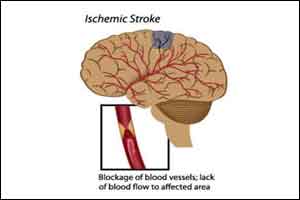- Home
- Editorial
- News
- Practice Guidelines
- Anesthesiology Guidelines
- Cancer Guidelines
- Cardiac Sciences Guidelines
- Critical Care Guidelines
- Dentistry Guidelines
- Dermatology Guidelines
- Diabetes and Endo Guidelines
- Diagnostics Guidelines
- ENT Guidelines
- Featured Practice Guidelines
- Gastroenterology Guidelines
- Geriatrics Guidelines
- Medicine Guidelines
- Nephrology Guidelines
- Neurosciences Guidelines
- Obs and Gynae Guidelines
- Ophthalmology Guidelines
- Orthopaedics Guidelines
- Paediatrics Guidelines
- Psychiatry Guidelines
- Pulmonology Guidelines
- Radiology Guidelines
- Surgery Guidelines
- Urology Guidelines
Diet Soft Drink intake has high risk of Stroke, Dementia

Dr.Matthew P. Pase and associates in the community-based Framingham Heart Study Offspring cohort analyzed whether sugar- or artificially sweetened beverage consumption was associated with the prospective risks of incident stroke or dementia.The researchers found that Artificially sweetened soft drinks, like diet soda, are associated with increased risk for stroke and dementia.The study has been published in Stroke.
The researchers studied 2888 participants aged >45 years for incident stroke (mean age 62 [SD, 9] years; 45% men) and 1484 participants aged >60 years for incident dementia (mean age 69 [SD, 6] years; 46% men). Beverage intake was quantified using a food-frequency questionnaire at cohort examinations 5 (1991–1995), 6 (1995–1998), and 7 (1998–2001). We quantified recent consumption at examination 7 and cumulative consumption by averaging across examinations. Surveillance for incident events commenced at examination 7 and continued for 10 years. We observed 97 cases of incident stroke (82 ischemic) and 81 cases of incident dementia (63 consistent with Alzheimer’s disease).
It was found that after adjustments for age, sex, education (for analysis of dementia), caloric intake, diet quality, physical activity, and smoking, higher recent and higher cumulative intake of artificially sweetened soft drinks were associated with an increased risk of ischemic stroke, all-cause dementia, and Alzheimer’s disease dementia. When comparing daily cumulative intake to 0 per week (reference), the hazard ratios were 2.96 (95% confidence interval, 1.26–6.97) for ischemic stroke and 2.89 (95% confidence interval, 1.18–7.07) for Alzheimer’s disease. Sugar-sweetened beverages were not associated with stroke or dementia.
It was concluded that Artificially sweetened soft drink consumption was associated with a higher risk of stroke and dementia.
Using the Framingham Offspring Cohort, researchers examined associations between soft drink consumption, as reported on food-frequency questionnaires, and vascular outcomes. Over 10 years' follow-up, recent and cumulative intake of artificially sweetened soft drinks was associated with increased risks for ischemic stroke, all-cause dementia, and Alzheimer dementia. However, the dementia risks were no longer significant after adjustment for prevalent diabetes and hypertension. Sugar-sweetened soft drinks did not pose the increased risk.
Editorialists note that people may switch to diet soft drinks after they are flagged as being high risk. They conclude: "The growing number of epidemiological studies showing strong associations between frequent consumption of [artificially sweetened beverages] and vascular outcomes, however, suggests that it may not be reasonable to substitute or promote [artificially sweetened drinks] as healthier alternatives."
For further reference log on to :
http://stroke.ahajournals.org/content/early/2017/04/20/STROKEAHA.116.016027

Disclaimer: This site is primarily intended for healthcare professionals. Any content/information on this website does not replace the advice of medical and/or health professionals and should not be construed as medical/diagnostic advice/endorsement or prescription. Use of this site is subject to our terms of use, privacy policy, advertisement policy. © 2020 Minerva Medical Treatment Pvt Ltd